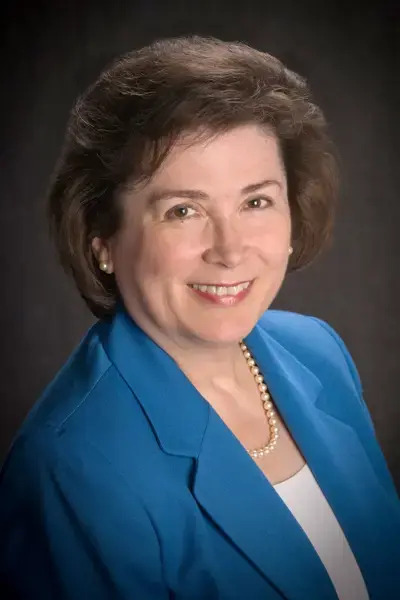
Linda Bennett arrived on campus in 2003 as the vice president for academic affairs and provost, eventually becoming president in 2009—a position she held until her retirement in 2018. Her journey to leadership at USI represents a remarkable path of perseverance and dedication to higher education.
Bennett was a first-generation high school and college graduate in her family. She attended the University of Cincinnati and graduated with a Ph.D. in political science. During her collegiate journey in the early 1970s, she faced significant gender barriers in her chosen field.
“When I declared a political science major as a freshman, the chair of the department advised me to go to home economics,” Bennett said. “I didn’t listen. I stayed with what interested me.”
At a time when women were vastly underrepresented in higher education, particularly in political science, Bennett persisted. She was among the few female graduate students in her department, studying in an environment with minimal female representation among professors.
Bennett’s career path included progressive leadership roles that prepared her for her service at USI. She began as a full-time faculty member and department chair at Wittenberg University in Springfield, Ohio. From there, she moved to Northern Kentucky University as a department chair for three years, followed by four years as dean of the College of Arts and Sciences at Appalachian State University in Boone, North Carolina.
These experiences deepened her understanding of working with people and cultivated her leadership skills. “At each post, I experienced challenges, but also strong support,” Bennett said.
Bennett describes her time at USI as “15 wonderful years.”
Her presidency began in 2009, during one of the worst economic periods in decades. Despite budget cuts, limited state appropriations and challenges on many fronts, she worked with a strong team where “faculty stepped up to help across campus.”
Under her leadership, USI achieved numerous milestones, including a successful capital campaign that raised $58 million in commitments, the development of the Griffin Center, the naming of the Romain College of Business, the acceleration of graduate program growth, the addition of many new academic programs and national recognition from multiple sources including the Carnegie Foundation
Bennett emphasizes that these accomplishments were collaborative efforts. “I start everything I list with ‘we’ because no president does it alone. It is the work of everyone across campus that makes progress possible.”
When Bennett arrived at USI, she was pleased to find two women already serving as vice presidents. She notes that President Hoops supported her professional development, a model she continued by offering development opportunities to women advancing in administration.
As both vice president and president, Bennett made it a point to speak with every new faculty member to understand their professional interests and needs, helping to foster an inclusive environment.
Bennett has witnessed significant changes in higher education throughout her career. “Women now make up more than a majority of college students on many campuses, including at USI,” she said. “That was not the case when I started college in the fall of 1970.”
Since retiring in 2018, Bennett has remained active in the community, serving on the Deaconess Health System board for the past decade.
Bennett remains grateful that she could finish her career at USI. “There are so many good memories of the people there,” she said. “I still hear from some of the students I got to know and sometimes there’s an opportunity for a hug and a quick catch-up on their lives. It means everything to me.”
Her belief in education as a transformative force remains strong. “There is no more important cause than valuing education and the opportunity for all to access the opportunities a college education can facilitate,” she said. She continues to advocate for higher education amid voices that “denigrate universities and seek to steer many away from the opportunities education can provide.”
Bennett’s message to today’s students and future leaders resonates with her own journey.


